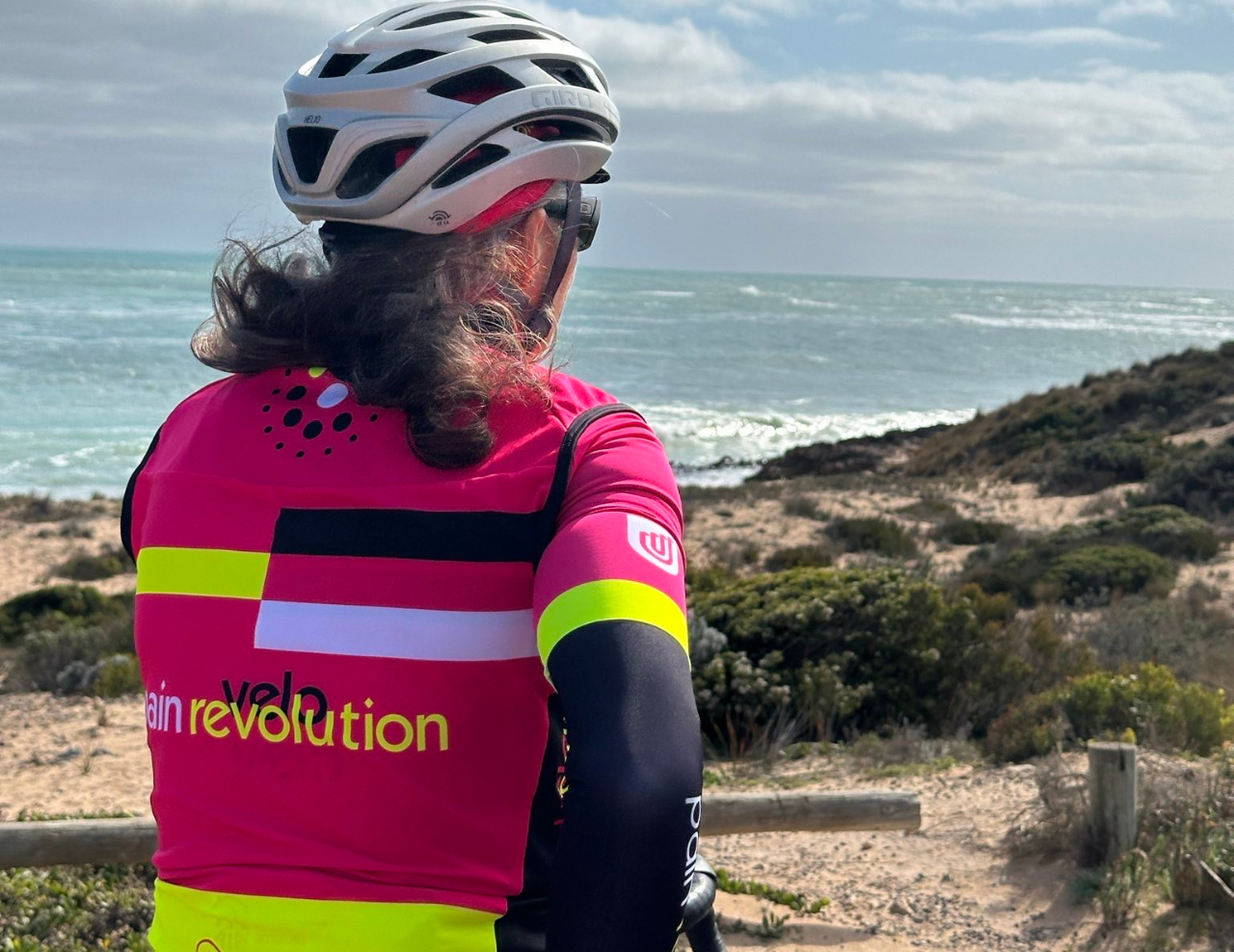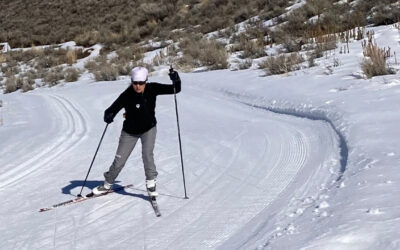Wow what a trip! I am so thankful for the opportunity to ride in the Rural Outreach Tour in Australia and sincerely appreciate everyone in the Pain Free Athlete community that donated to the Pain Revolution. With your help I surpassed my fundraising goal. And it’s not too late! You can donate to this incredible organization anytime. As a thank you, this blog depicts the story and key messages from the tour.
I’ll begin with the ladies of the tour. A wonderful group of dedicated and inspiring women that warmly welcomed me onto the team. Our diverse group included a pharmacist, pelvic pain specialist, psychologists, an AIA health insurance company representative (a tour sponsor), and exercise physiologists. We accounted for one-third of the riders on the road. The men on tour were equally lovely and generous.

As I mentioned in my lead-up blog to the tour, the objective is to bring the latest pain science research to the communities. Below pain revolution founder, legendary researcher, top professor, and stellar rider, Lorimer Moseley presented on the importance of including pain science education in the treatment of chronic pain. Gaining buy-in from local professionals is essential for success of the Local Pain Educator (LPE) program.
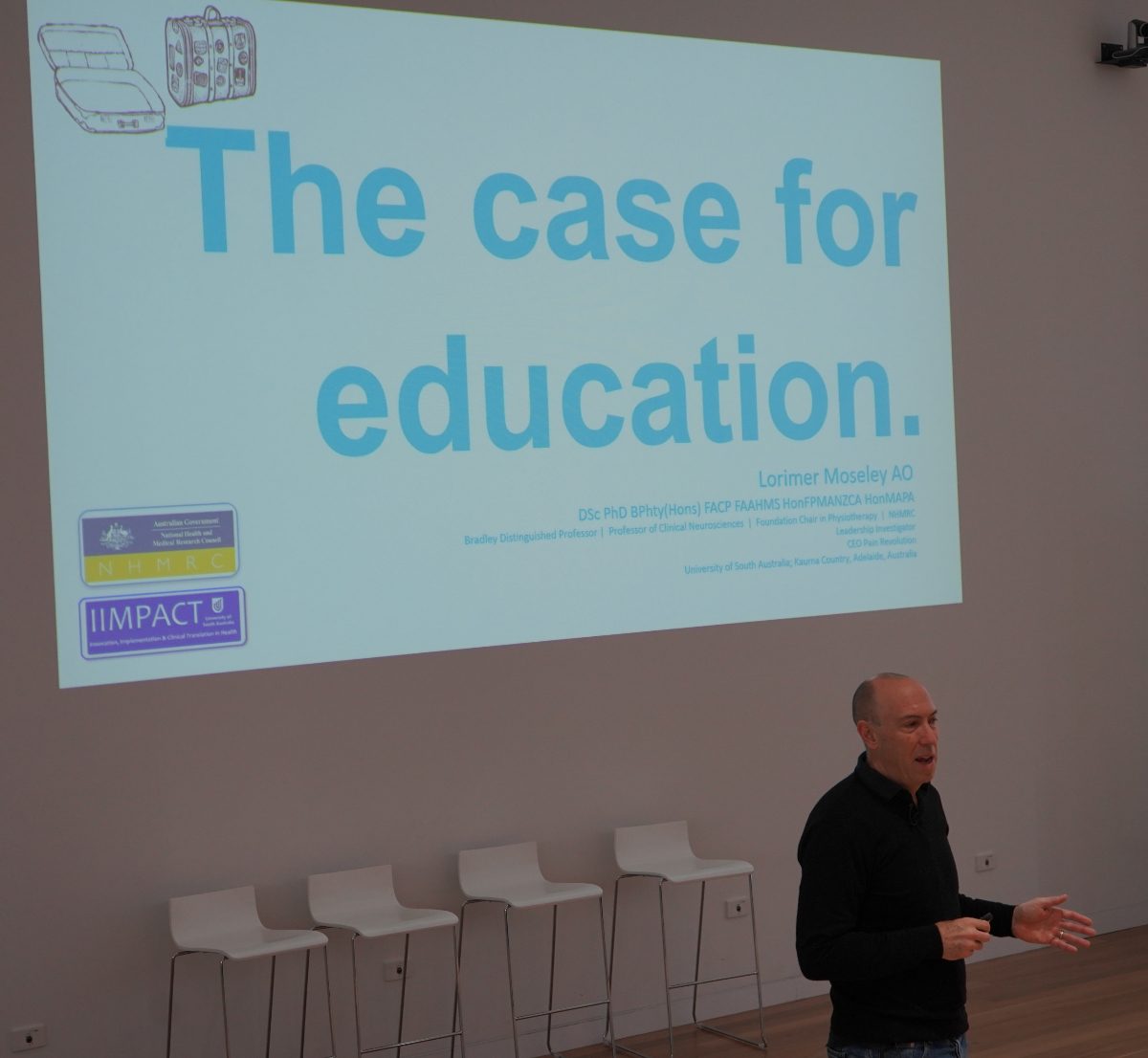
The mission of the Pain Revolution is: “to train and support 1000 healthcare professionals to become Local Pain Educators, bringing their advanced knowledge and skills in pain education and care to their colleagues and communities so that every Australian has access to the skills, knowledge and local support to prevent and overcome persistent pain.”
The Rural Outreach Tour is a fundraiser for this initiative. Once a community has a LPE, they establish a local health professional network called a ‘Local Pain Collective’ which consists of a diverse group of individuals similar to the riders on tour. This way the momentum generated, and information shared during the tour can continue and spread.
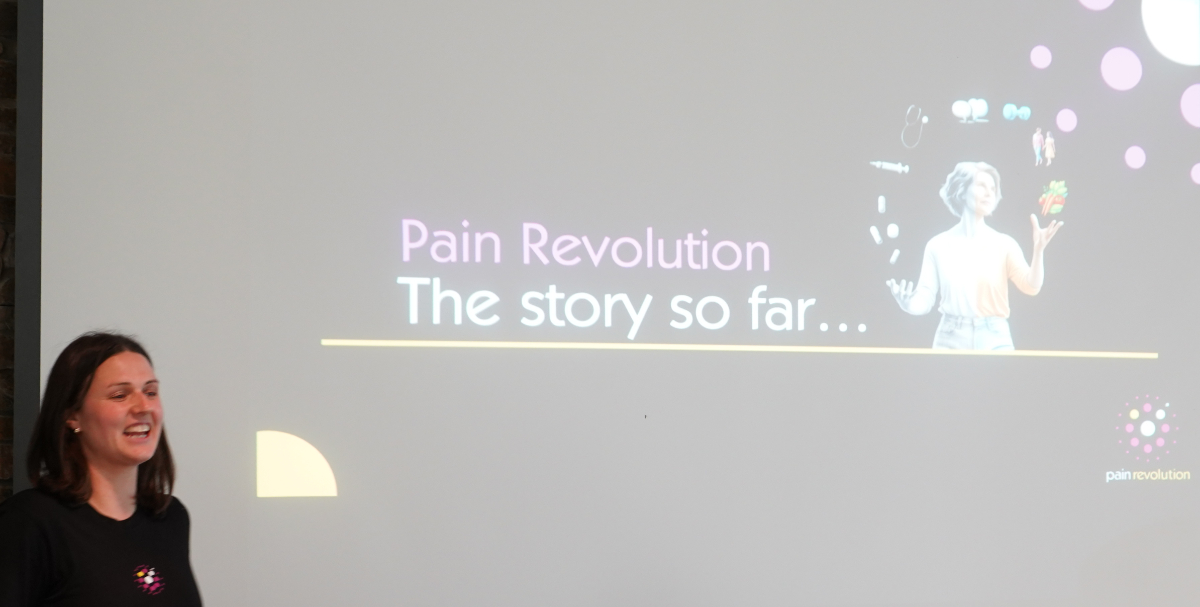
We rode by many beautiful canola flower fields.
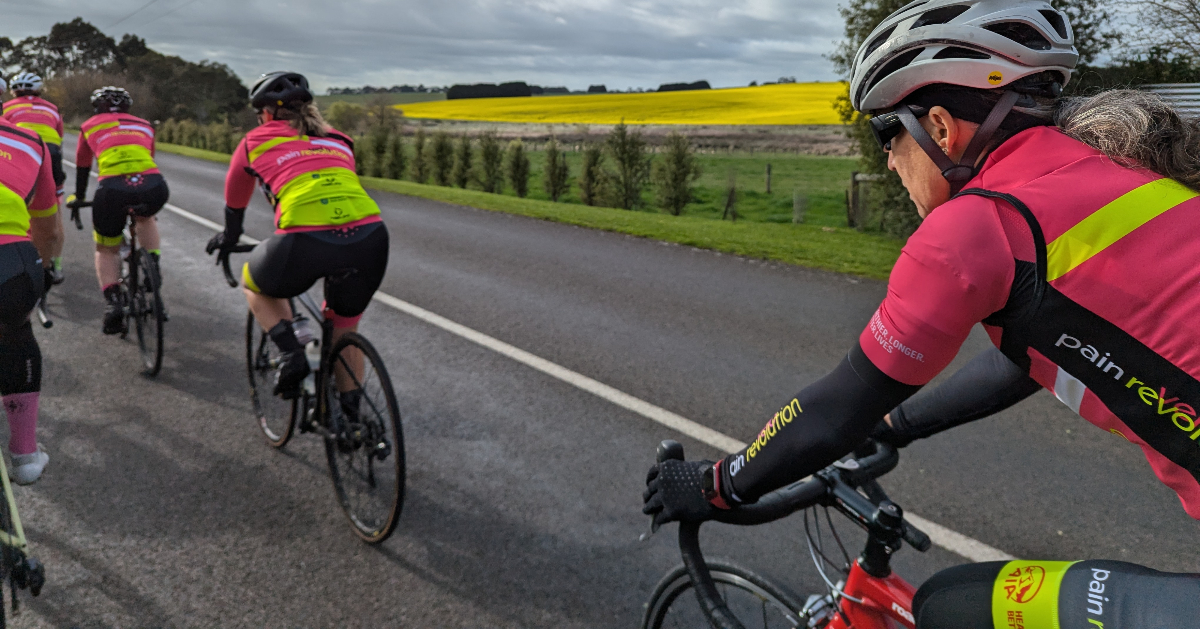
And rolling green hills that were often covered with sheep.
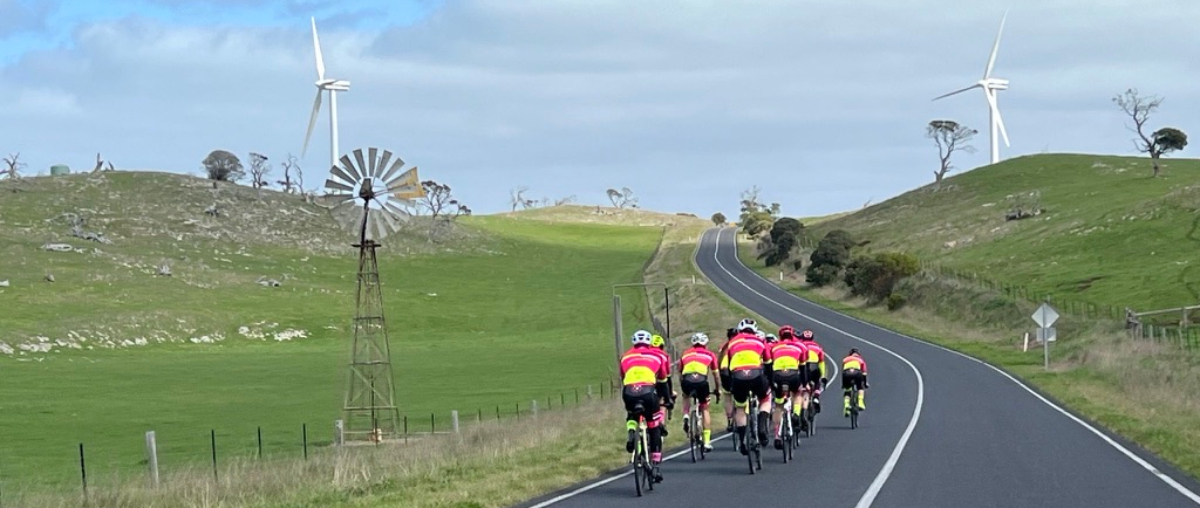
An exciting addition to the tour was the EQUIPP (EQUIpping the general Public to prevent and overcome chronic Pain) program lead by Dr Louise Wiles. In June of this year the University of South Australia was awarded a $3 million grant to fund this ‘whole of community’ educational lifestyle program. The posters in the background of the photo below depict the towns we visited on the tour. During the community education sessions, the team recorded locations where people gather so they can strategize targeted pain science interventions in those places.
“Project Manager Dr Louise Wiles (pictured below), says that pain education, delivered by multidisciplinary health practitioners in primary care, is recommended internationally as an integral component of best care for chronic pain. Despite this, care currently delivered to people with chronic pain is often characterised by inadequate provision of advice and education, inappropriate referral for imaging, and high rates of opioid prescription.”
Similar problems to what we experience in the US! I wish Louise and her team all the best in their efforts and hope they are wildly successful in creating a model which can be applied globally.
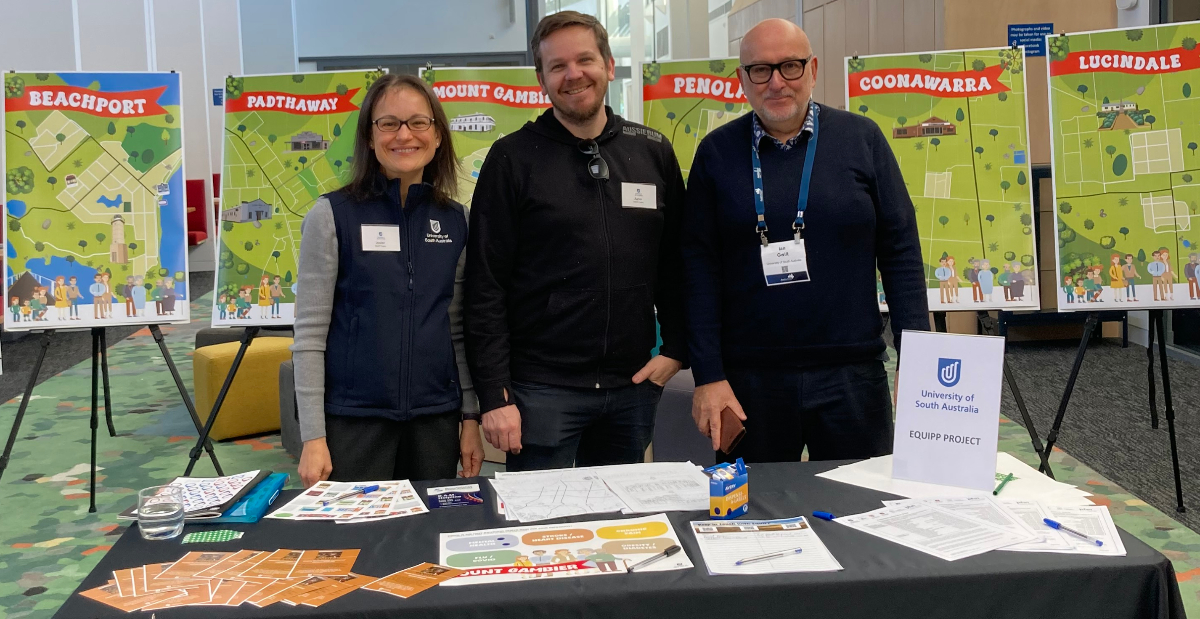
We found a delicious cafe in Halls Gap to refuel and warm-up. Temperatures were a bit chilly in this area by Grampians National Park. It was so cold that we had to skip the big climb in the tour.
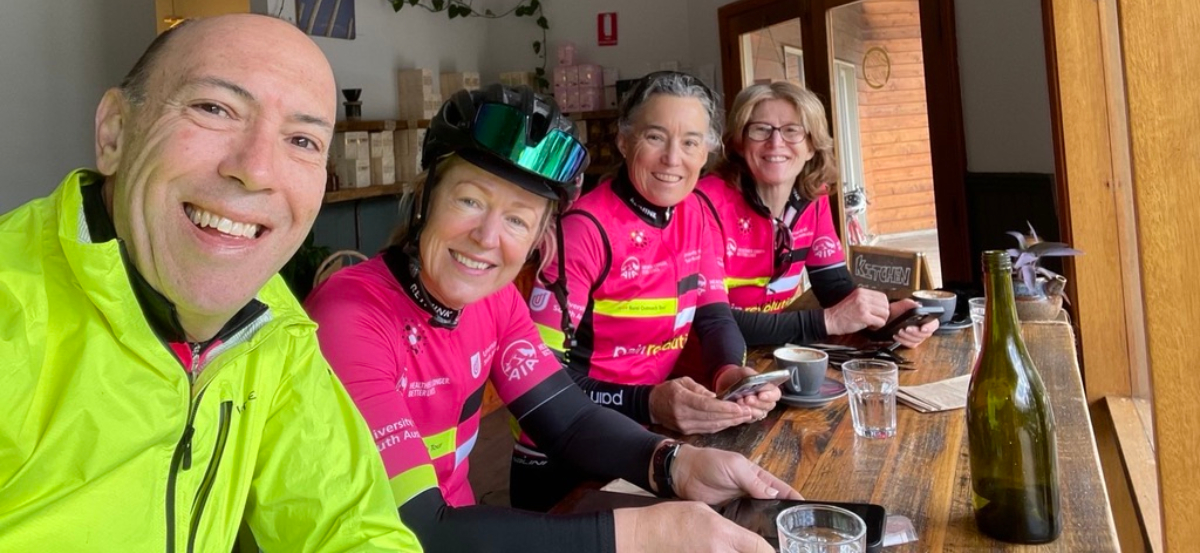
Look close and you’ll see the baby’s nose coming out of her pouch.
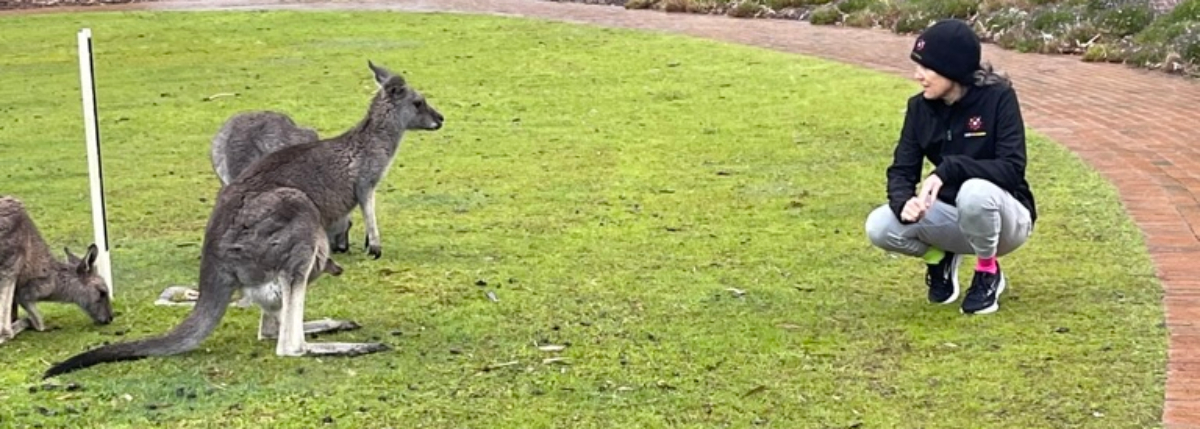
The community education sessions had three parts. First, a tag team presentation by two education team members. The presentation was brief since research has shown that this is not the best way to deliver pain science education.
The presentation had three main messages:
- Lots of things influence pain
- Pain is always real
- Pain can change
One evening, community and tour members alike were treated to a presentation by pain education icon, David Butler. David mentored Lorimer and they have written several books together including Explain Pain and the associated workbooks.

Second, following the education presentation, a lived experience was delivered though a personal story by someone that had recovered from pain. It was a powerful combo.
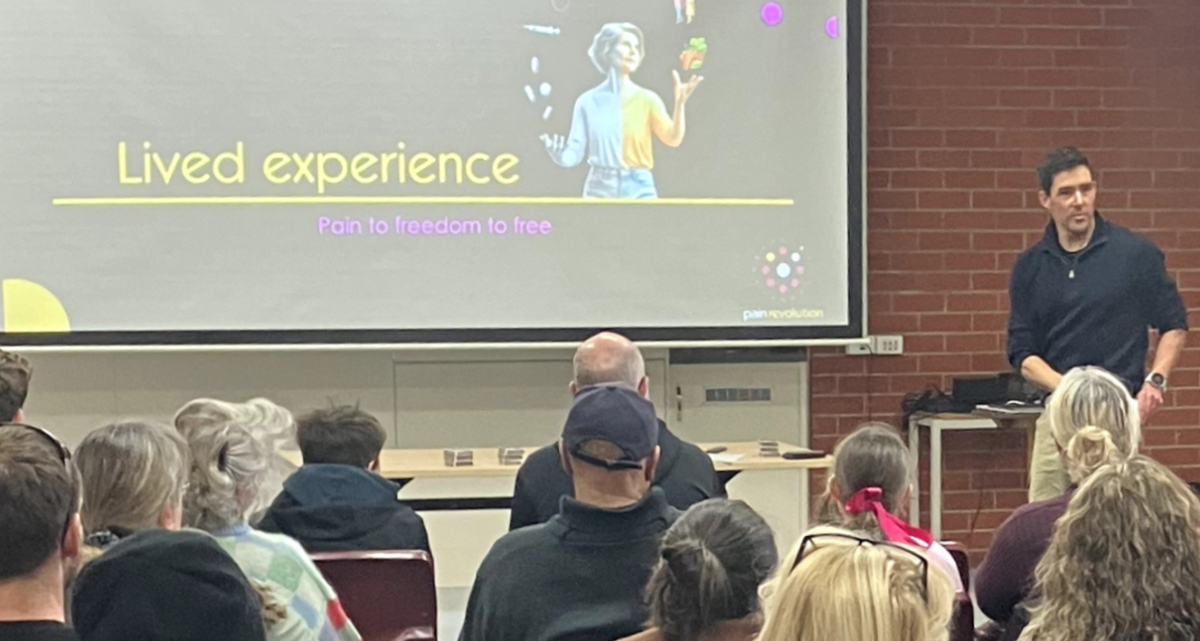
The third part of the community session was hands-on. Booths were set-up where participants could interact with the “illusions” demonstrated in the presentation. Learn more in this blog: Visual Illusions and Your Perception of Pain.
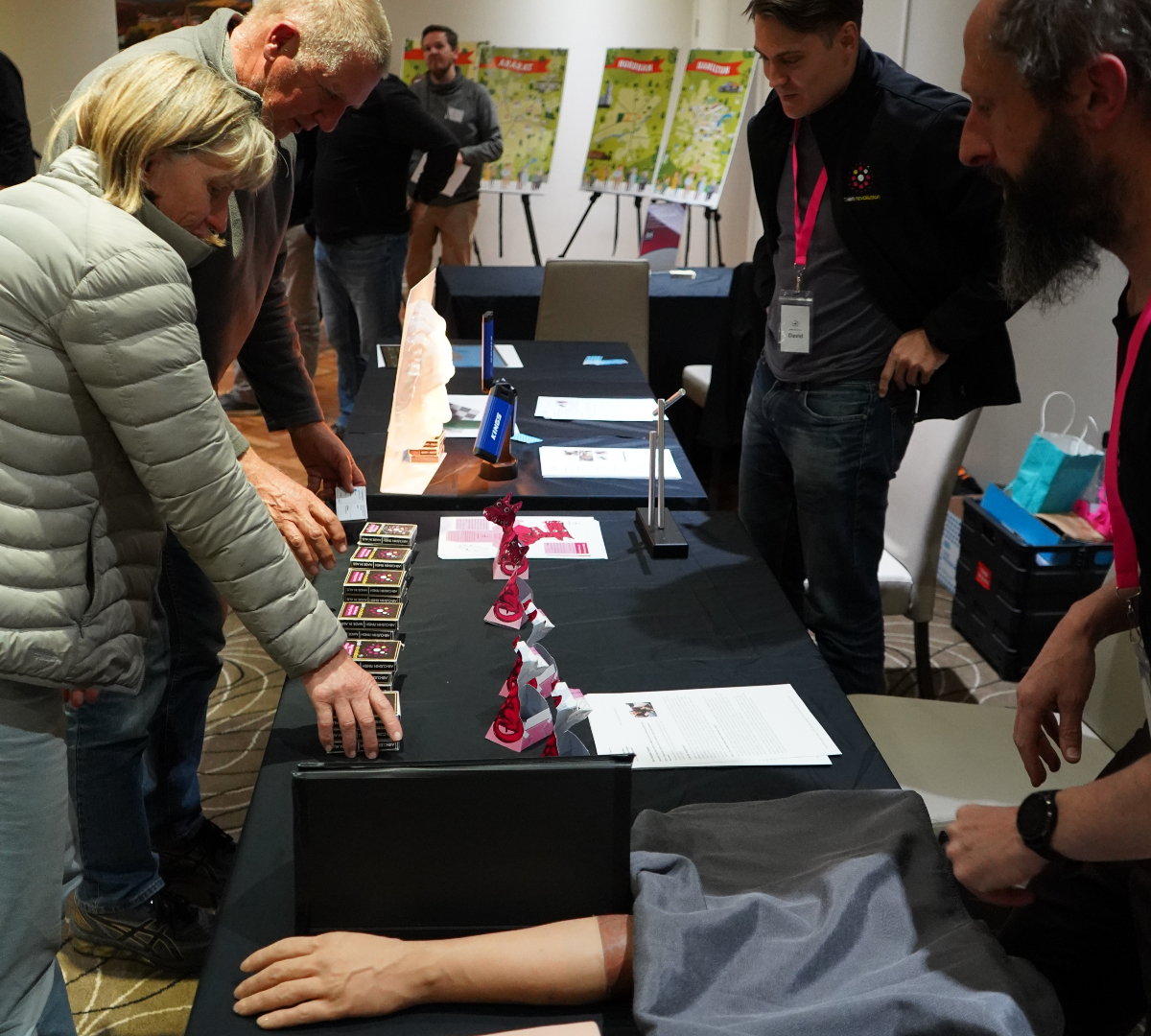
On the first and last day of the tour, half-day professional workshops were held. One of the presenters was Professor Tasha Stanton whose work I have written about in a previous blog. It was a thrill to meet her and chat afterwards.

Another leader in the pain field, University of Adelaide Professor Mark Hutchinson, reminded us that chronic pain has biological, psychological, and social components.

The title of Brendan’s presentation says a lot. How we view our bodies, as fragile or as bioplastic and renewable, impacts our willingness to move.

I’ll conclude this story with a picture of the whole team. In the back row are the riders and ride leaders in yellow jerseys. In the front row is the Education team, EQUIPP team, and the extraordinary tour support crew that took care of our every need.

Thanks for inviting me on this memorable journey!


